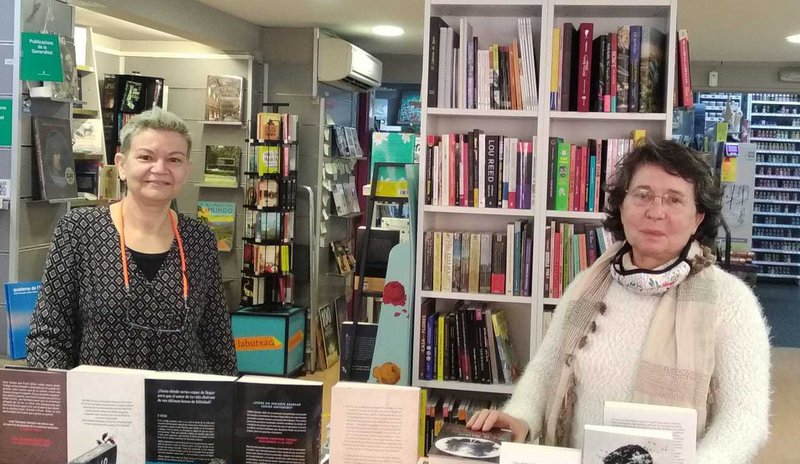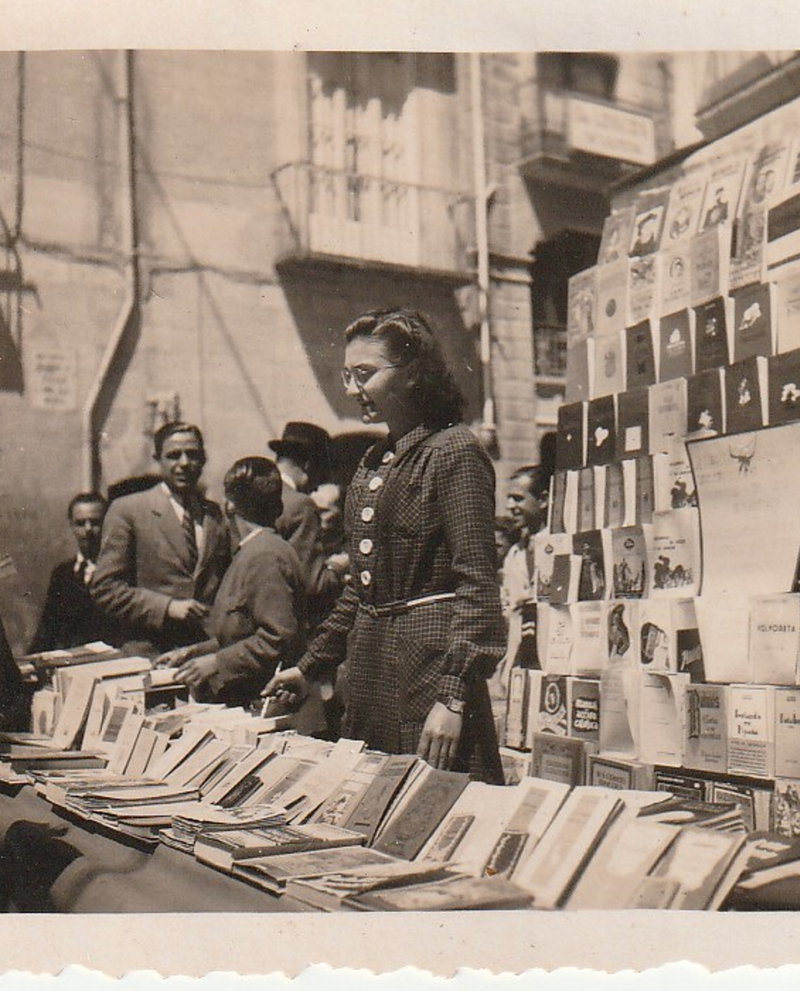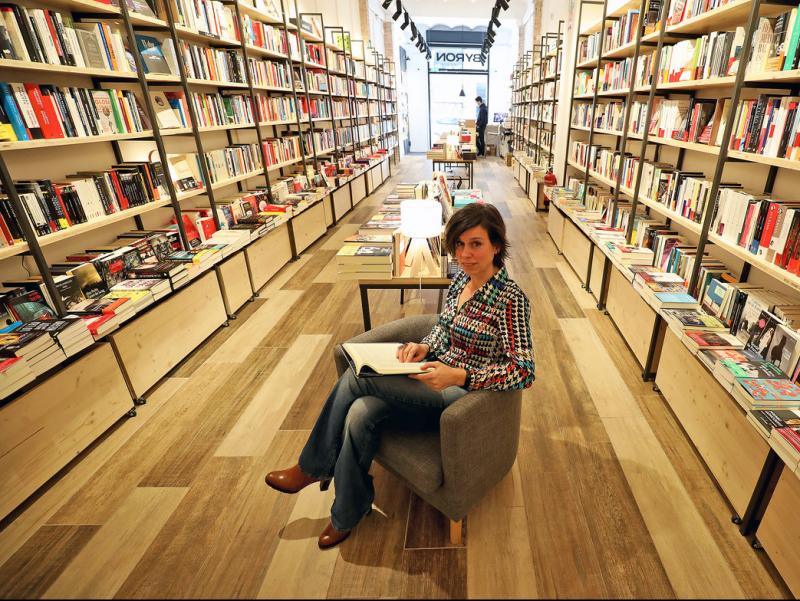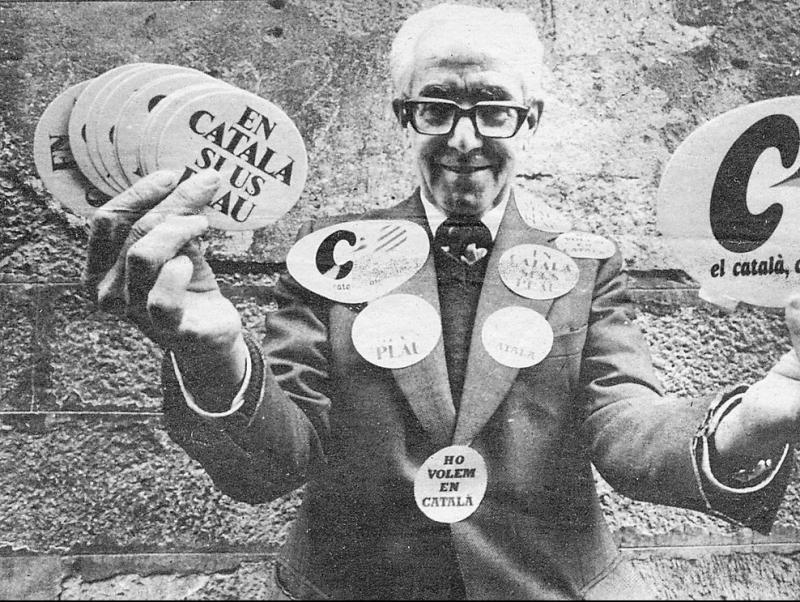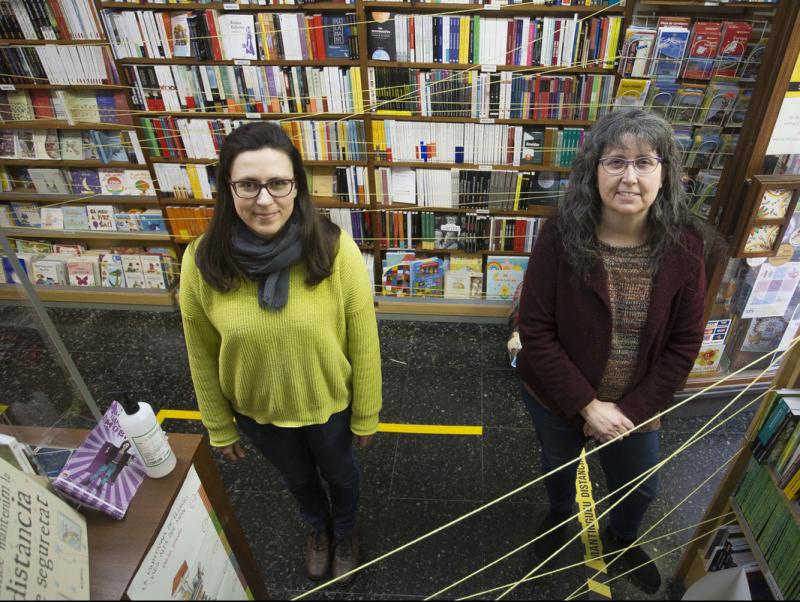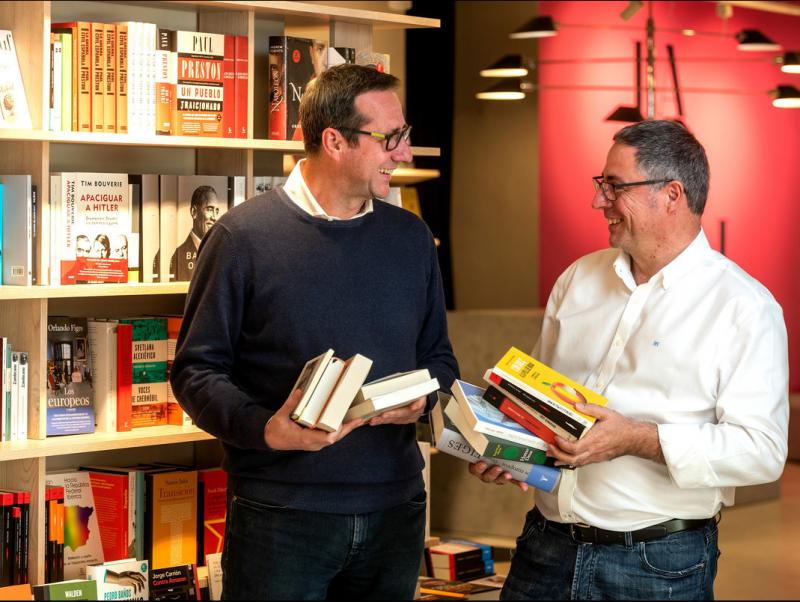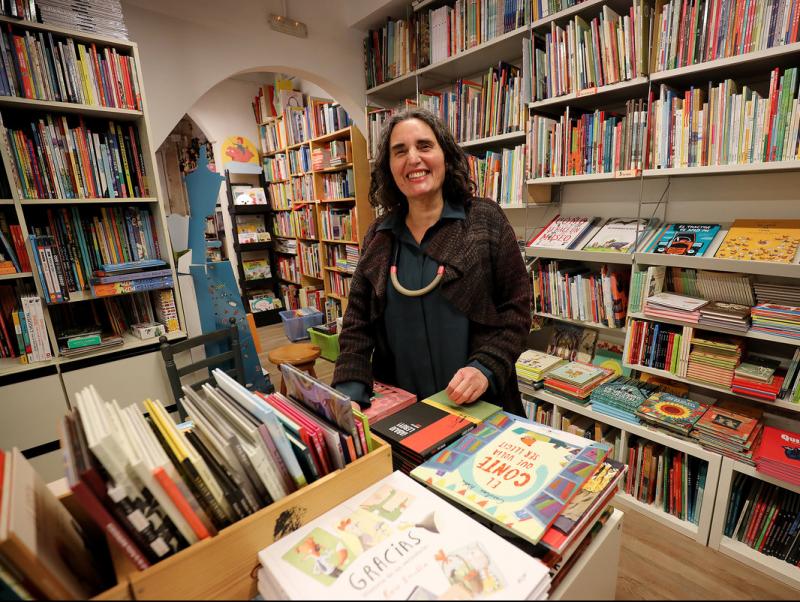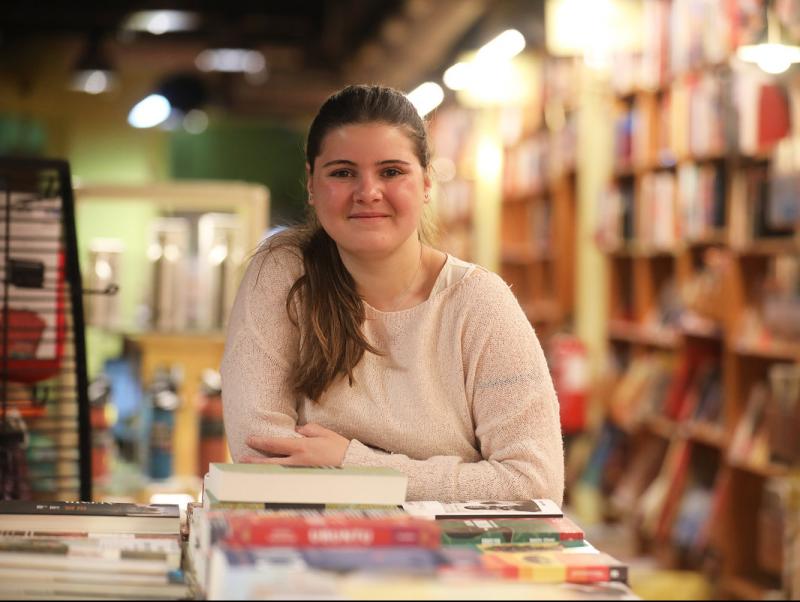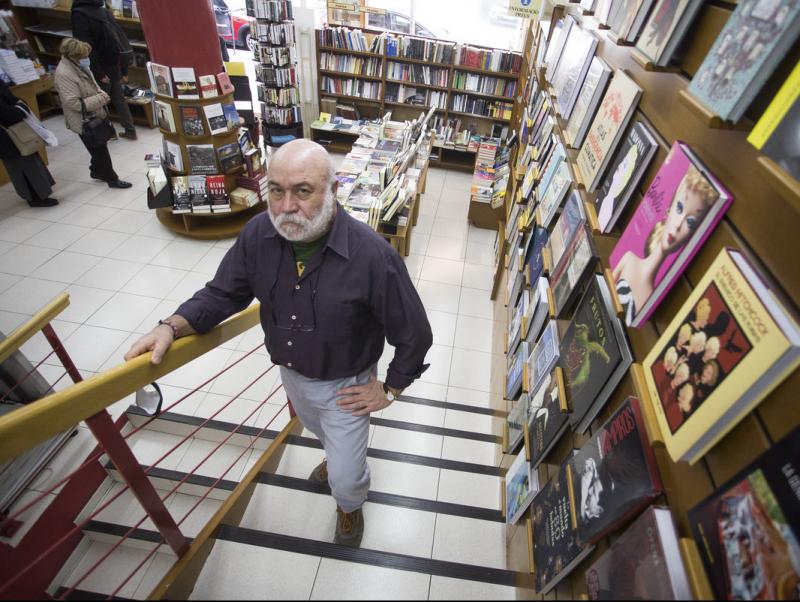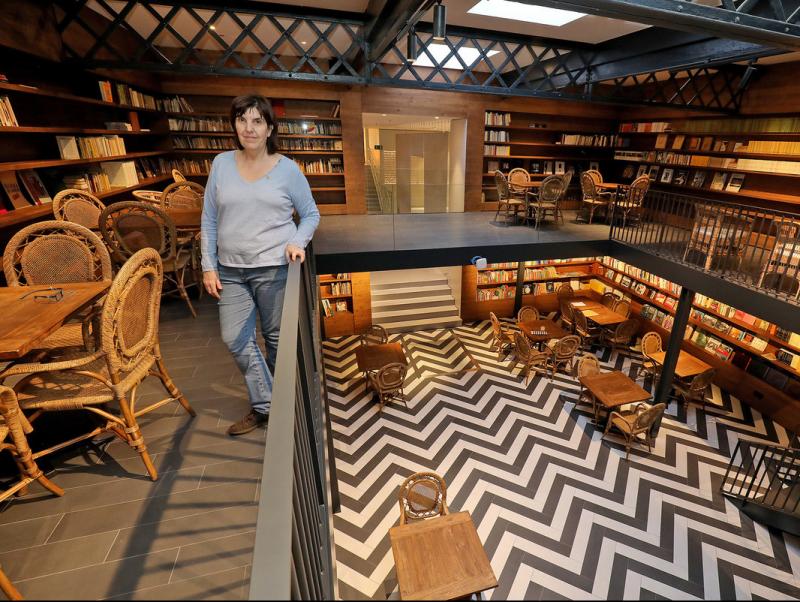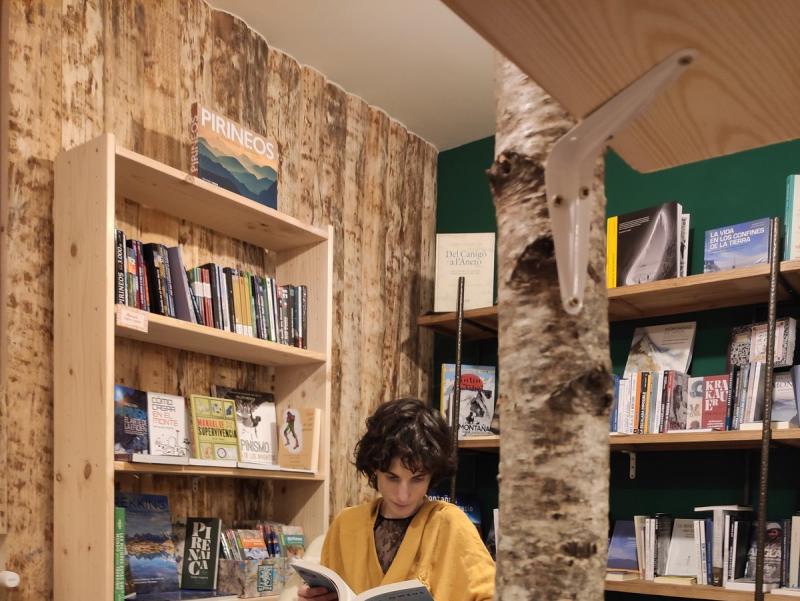In 2005, the owner, Jordi López, wanted to close the business, but employees created La 2 de Viladrich.
Rosa Cubeles: I started working at the bookshop in 1973. When Jordi decided to close, there were people who worked here who wanted to continue the business. With Fina López we created a limited company of which Jordi López was also part. The three of us set up La 2 de Viladrich. Ester Galindo: I’ve been here since 2011. We’re now preparing a publication on the history of the bookshop. We already have a title - but maybe it’s better not to give it away - and very influential people from the region are linked to it.
Is being heirs to a long tradition of booksellers and being at the forefront of local culture a responsibility?
EG: I don’t know if it is a burden but it is wonderful. I think there’s a lack of perception that it’s like this because of the public. There are very few bookshops in Europe that have survived so long. It doesn’t happen in many places, but here we don’t let it faze us.
Your website says running a bookshop in a small peripheral town is no small feat.
EG: It’s very difficult. Fortunately, we have a loyal clientele and there’s an awareness that we all help keep the bookshop open, not just those who work here but also those who come to buy here. We have customers who look on the internet but who then come here to buy books, and they don’t mind waiting two more days. They value what it means to have a bookshop here and are not guided by the immediacy of getting a book from Amazon. It’s hard to compete with the giants, who may not even charge shipping because of the volume of sales.
When the previous owner decided to close, he said the business was unsustainable and that small and medium-sized bookshops were in jeopardy. Has the situation improved?
EG: No, it is worse. Competition in the book world is brutal. The rules of the game are not the same. For example, with the AMPA parent-teacher associations. RC: We used to sell textbooks and pupils knew that at the start of the school year they had to come here to get their books. Now the books are supplied directly by the AMPA. There are children who don’t know the bookshop because they have never come.
Out of everything that’s published, what criteria do you apply to choose what to offer customers?
EG: We’re a non-specialist bookshop, but if there’s one thing in particular that we have it is local authors and books about Terres de l’Ebre. We currently have work from the major figures of letters in Terres de l’Ebre, such as Maria Climent, Laia Viñas, Marta Rojals, the translator Zoraida de Torres, the writer and translator Yannick Garcia, Albert Roig... We have a good crop.
You’re part of the “Ebre book lobby”, with the Bassa de Móra d’Ebre bookshop and the Serret de Vall-de-roures [now closed]. Is this lobby currently working?
EG: Yes. The Serret bookshop has closed, but now there’s El Núvol, in Móra la Nova. The three bookshops share activities, we go to the Litterarum fair together, to the Catalan Book Week... and we put together a kind of Ebre tour in some book presentations.
How has the crisis affected you?
RC: Initially, we had to close. We joined some initiatives like Open Bookshops, which worked really well, and Libelista, which is a major boost. We also set up a phone number for people to place orders and did home delivery. I think we gave a good service because people were locked up at home with the kids and they had to be entertained.
Have book sales gone up since the first lockdown?
RC: Yes, they’re up from 2019. We welcomed people back who had not read anything for a long time, and who regained their desire to read when they had more time. EG: It’s possible that this trend won’t continue for much longer. We’re now back in the same situation as we were before the pandemic. People no longer read as much as they did during the lockdown, when they were happy to spend more time reading. I think there are people who will struggle to keep on reading, especially women, who tend to be keen readers.
Will the pandemic lead to new ways of doing things in bookshops?
RC: We’ll be giving more impetus to digital platforms, so that if a new lockdown comes everything will be more immediate. But we have to keep fighting so that people come to bookshops freely and talk to booksellers.
What have been the big changes in the bookshop business since you began in the early seventies?
RC: A lot more is published now. I remember that there used to be very few new books. The world of children’s books was also very small and it is now a gigantic business. Before, everything was done manually: a delivery note arrived, you had to enter it, you had to know where you’d put the book... Little by little everything is becoming computerised. It’s harder to manage the volume of books now, maybe that’s why there are more specialist bookshops.
bookshops

